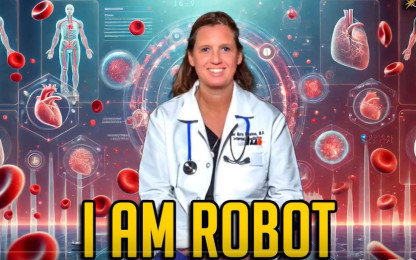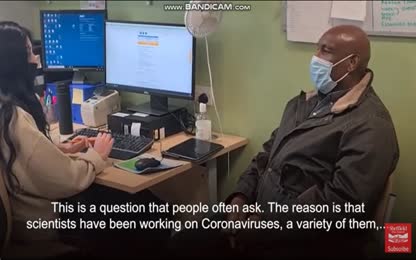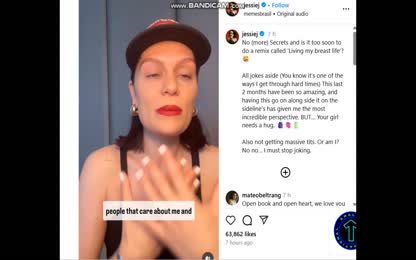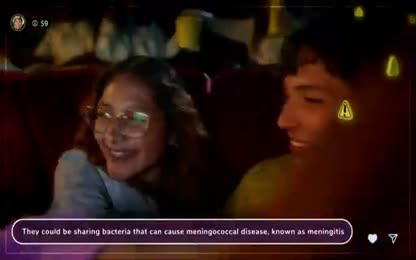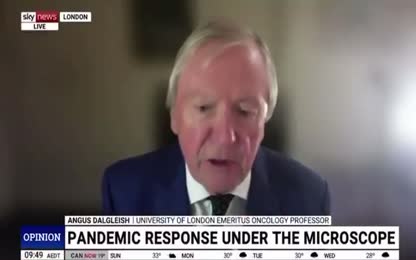Advertisement
Pharmaceutical Fraud Vaccines Merck
A case study in corporate malfeasance.
References available at: tinyurl.com/y3mrknxq
Mirror: https://youtu.be/5XWWrsuZzdw
- Category: Uncategorized,Cancer / Cancer Treatment,Medicine / FDA approved Drug ,Vaccine / Mandatory Agenda
- Duration: 16:27
- Date: 2019-07-17 16:20:40
- Tags: pharmaceutical, fraud, vaccines, merck
1 Comments
Video Transcript:
This presentation is on the pharmaceutical companies that manufacture vaccines. And in the interest of time, I'll be focusing on one pharmaceutical company in particular, and that pharmaceutical company is known as Merck. This is Merck's website. It states, inventing for life. At Merck, we are inspired by a shared vision and mission to save and improve lives. Let's get to know Merck. Merck is one of the top five pharmaceutical companies in the world. They have an annual revenue of around $40 billion per year, give or take a few billion dollars. The story in what it's helped today begins just before the turn of the century. The year is 1999, and Merck has brought a new painkiller onto the market called Viox. According to a paper published in the British Medical Journal, since the early development of Viox, some scientists at Merck were concerned that the drug might adversely affect the cardiovascular system. Despite Merck's knowledge that Viox might increase blood clot formation, none of the intervention studies it did for its new drug application to the FDA in 1998 were designed to evaluate cardiovascular risk. So let's think about this for a minute. Merck's own scientists, while developing this new drug, say, this could be bad for the heart. It could be bad for the cardiovascular system. So Merck made the decision to not evaluate the cardiovascular risk of that drug in its new drug application to the FDA. And let's see how that turned out. Nearly 107 million prescriptions for Viox were dispensed in the US between 1999 and 2004, when the drug was withdrawn from the market, after a clinical trial showed it increased the risk of heart attack and stroke. This means that none of the people picking up those prescriptions have the opportunity to consider the true balance of its risks and benefits. According to a paper published in the Medical Journal Lancet, Viox is estimated to have killed some 38,000 patients. And that's actually a conservative estimate. Less conservative estimates put the death toll at around 60,000 people. According to an article published in the New York Times, in 2007 Merck agreed to pay $4.85 billion to settle 27,000 lawsuits by people who had claimed they or their relatives had suffered injury or death after taking Viox. Vox had an annual revenue of $2.5 billion before it was withdrawn from the market. This is the headline of a CBS News article. It states, Merck created hit list to destroy, neutralize, or discredit dissenting doctors. The list, email between Merck employees contained doctors' names with the labels neutralize, neutralized, or discredit next to them. Merck emails from 1999 showed company executives complaining about doctors who dislike using Viox. One email said, quote, we may need to seek them out and destroy them where they live. So if you were a doctor who criticized Viox, Merck would put you on their hit list to neutralize you, discredit you, or maybe even destroy you where you live. The plaintiff's lawyer gave this assessment. It gives you the dark side of the use of key opinion leaders and thought leaders. If they say things you don't like to hear, you have to neutralize them. It does suggest a certain culture within the organization about how to deal with your opponents and those who disagree with you. The CBS News article concluded by saying, The allegations come on the heels of revelations that Merck created a fake medical journal, the Australasian journal of bone and joint medicine in which to publish studies about Viox had pop songs commissioned about Viox to inspire its staff and paid ghost writers to draft articles about the drug. According to an article published in the New York Times, in 2011, Merck agreed to pay an additional $950 million and pled guilty to a criminal charge over the marketing and sales of Viox. The negotiated settlement was the latest of a series of fraud cases brought by federal and state prosecutors against major pharmaceutical companies. Tony West, assistant attorney general of the Justice Department's Civil Division, said, When a pharmaceutical company ignores FDA rules aimed at keeping our medicine safe and effective, that company undermines the ability of healthcare providers to make the best medical decisions on behalf of their patients. Notably no person was held liable for Merck's conduct. This was just the cost of doing business. So what does all this have to do with vaccines? And why should you even care? Well, it turns out Merck is the number one vaccine manufacturer in the United States and they are the number two vaccine manufacturer in the world. This is Merck's history with vaccines. In 1898 Merck brought their first smallpox vaccine onto the market in the United States. Today Merck manufactures vaccines for measles, mumps, rebella, chickenpox, shingles, hepatitis A, hepatitis B, rotavirus, human papilloma virus, HPV, and more. This is section 13 of a vaccine package insert. It states this vaccine quote has not been evaluated for its carcinogenic or mutagenic potential or its potential to impair fertility. Reconvax HB is Merck's hepatitis B vaccine, which in the United States is typically given to newborn babies on their first day of life. And we don't know if this vaccine or many of Merck's other vaccines increase the risk for cancer or impair fertility. And we don't know that because it has not been evaluated. Do you remember what happened with viox when Merck failed to evaluate its cardiovascular risk? What might happen if something similar were to take place with vaccines? This is Merck on Collegy. If it should happen at some point in the future that some vaccines were found to increase the risk of cancer, then Merck may actually stand to profit from that. And that's because Merck also develops drugs used to treat cancer. Now, this is purely speculative. The fact of the matter is we don't know one way or the other if vaccines increase the risk of cancer or not. And again, that's because they have not been evaluated for their carcinogenic potential. What I'm going to introduce next though goes well beyond mere speculation. Merck is currently being sued in court over three different vaccines that they manufacture. Zostivax, a Schingles vaccine, MMR, specifically the Mumps component of that vaccine, and Gardasil, an HPV vaccine. According to the website, classaction.com, Merck and companies battling lawsuits once again after its Zostivax Schingles vaccine allegedly caused blindness, paralysis, brain damage, liver failure, and even death. Contact us for a free legal consultation. With website drugwasher.org states, the Schingles vaccine Zostivax is all but harmless, at least according to the storm of lawsuits that recently hit many US and federal state courts. A serious risk to public safety was deliberately concealed by the manufacturer who sold the Schingles vaccine to countless unaware patients. Thousands who were injected with the Schingles vaccine suffered from serious adverse reactions, including nerve damage, paralysis, blindness, or even contracted the same disease the vaccine was designed to protect against. This is data taken from the vaccine adverse events reporting system, abbreviated VAERS. Some 39,000 adverse events were associated with Zostivax, including 142 reported deaths, 313 life threatening adverse events, and 931 cases of permanent disability associated with Merck's Zostivax Schingles vaccine. According to the National Vaccine Information Center, the Schingles vaccine is one of the few vaccines not covered by the National Childhood Vaccine Injury Act of 1986, which means individuals can sue the vaccine manufacturer directly for vaccine injuries. Merck is currently defending itself against nearly 60 lawsuits that get pet alleged, Zostivax caused serious side effects, including death. The outcome of these proceedings is pending. Drugwasher.org goes on to say, this is not the first time that Merck's behavior has been all but transparent. Back in 2010, two former Merck scientists filed whistleblower lawsuits alleging the efficacy tests for the Mumps component of the MMR vaccine were faked. According to the lawsuit, Merck began a sham testing program in the late 1990s, spiking blood samples with rabbit and antibodies to hide the declining efficacy of their Mumps vaccine. The objective of the fraudulent trials was to report efficacy of 95% or higher regardless of the vaccine's true efficacy. The Alliance for Human Research Protection states this is a major federal case alleging fraud in vaccine testing and encapsulates how medical research can be manipulated to achieve desired results and why it may be wise to question the integrity and validity of, quote, science-based medicine. This is a paper published in the journal Vaccine in 2005. The title is, the effectiveness of the Mumps component of the MMR vaccine, a case-control study. Authors of this paper found that the Mumps component of the MMR was 64% effective after a single dose and 88% effective after two doses. So let's remember that first number, 64% effective after a single dose. This is Merck's website. It states that the Mumps component of the MMR vaccine is 96% effective after the first dose. So we have 64% efficacy according to a paper in the peer-reviewed scientific literature, but 96% efficacy according to Merck. Who are we to believe? Earlier this year there was a Mumps outbreak in Indiana University. This headline reads, nearly all Mumps patients were vaccinated, prompting some students to get a third MMR shot. University of Washington had a Mumps outbreak in 2017. Among the 42 cases, all Mumps patients had received two or more documented doses of measles' Mumps through Bello vaccine. University of Missouri had a Mumps outbreak in 2016. Dr. Susan Evan, Executive Director of the University Student Health Center, said, the fact that we have Mumps showing up in highly immunized populations likely reflects something about the effectiveness of the vaccine. All the students her team treated for Mumps had two MMR vaccine doses, a school requirement, but they got sick anyways. Harvard University had a Mumps outbreak in 2016 that headline reads, how did vaccinated Harvard students get the Mumps? According to the Boston Globe, all the infected students were vaccinated against Mumps. Earlier this year there was a Mumps outbreak on a U.S. naval ship. The headline reads, the Navy is fighting to get a rare viral Mumps outbreak under control after it stranded a U.S. warship at sea. As you are likely aware, military personnel are required to be fully up to date other immunizations. So given that we've had Mumps outbreaks in college campuses across the nation and even a U.S. naval ship, and that these people have been fully vaccinated for the Mumps, I think it's safe to wager it's not so called vaccine hesitancy that is responsible for these outbreaks, but rather vaccine failure. This is a graph of the number of cases of measles in recent years in the United States. As you can see by looking at the graph, the number of cases have typically been in the hundreds. This year has seen over a thousand cases of measles so far, which is the highest number of measles cases we've seen in over 25 years in the United States. Let's compare these numbers to the number of cases of Mumps we've seen in recent years. This is the number of cases of Mumps in the United States in recent years. As you can see, the number of cases have typically been in the thousands. This year has seen over a thousand cases similar to what we've seen with the measles, but in prior years we've had over 6,000 cases of Mumps compared to the say 600 or so cases of measles. Given that the number of cases of Mumps far exceeds the number of cases of measles in recent years, why do you think it is that the news in media is so focused on the measles and not the Mumps? Could it be that Mumps outbreaks are taking place in fully vaccinated populations and calling attention to that fact would bring into question the efficacy of the Mumps component of the MMR vaccine, and that might then shed light on the whistleblower lawsuit, Merkis Facing and Court Right Now. Merkis is now facing a third lawsuit for fraud over their HPV vaccine, Gardasil. A large legal team including Robert F. Kennedy Jr. is currently suing Merk for scientific fraud. The following video which can be found on YouTube alleges various manipulations and malfeasance that Merk used in getting Gardasil to market. Let's just watch the first 90 seconds of that video. Hi, I'm Robert F. Kennedy Jr. and I'm making this video for the sake of parents who are trying to make an informed decision of whether or not to give their child their boy or girl to Gardasil vaccine. I'm also making this video as a tool for pediatricians who are trying to understand how this vaccine if it's actually causing all of these problems with young girls could have been approved by FDA and mandated by CDC. Unfortunately, all of the things that I'm going to talk about in this video are available to the public on public documents as I'm going to show. Finally, I want to say this about Merk which is the company that makes the Gardasil vaccine. Many of the things that I'm going to say today would be slanderous if they were not true and if they're not true, Merk should sue me. Merk won't do that and they won't do it because in the United States truth is an absolute defense to the slander. And the second of all, Merk knows that if they sue me, I'm going to immediately file a discovery request and many, many more documents are going to emerge and illustrate even more fraud by this company on the American public and the people all over the world. This is Julie Gerberding. She was the director of the CDC from 2002 to 2009. In January of 2010, she joined Merk as president of their vaccine division. Julie Gerberding oversaw the approval of Gardasil as well as other vaccines during her tenure at the CDC. So I just wanted to illustrate the revolving door that exists between the government and the very industry that they're supposed to be regulating. So far in this presentation, I have focused on one pharmaceutical company in particular known as Merk. But I don't want you to get the idea that this kind of behavior is limited to Merk alone. According to a 2012 article published in the New York Times, the British drug maker GlaxoSmithCline, who is the number one vaccine manufacturer in the world, agreed to plead guilty to criminal charges and pay $3 billion in fines for promoting its best-selling antidepressants for unapproved uses and failing to report safety data about a top diabetes drug. The agreement also includes civil penalties for improper marketing of a half dozen other drugs. So I mentioned this just to illustrate that this kind of behavior is by no means limited to Merk alone. Elliott Spitzer at New York's Attorney General said, what we're learning is that money doesn't deter corporate malfeasance. The only thing that will work in my view is CEOs and officials being forced to resign, an individual culpability being enforced. The article also states, critics argue that even large fines are not enough to deter drug companies from unlawful behavior. Only when prosecutors sing about individual executives for punishment will practices begin to change. All in this presentation with a few questions to consider, can we trust pharmaceutical companies like Merk with our health and the health of our children? Are the vaccines manufactured by pharmaceutical companies like Merk truly safe and effective? If vaccines have not been evaluated for their carcinogenic potential or potential to impair fertility, can we really say that the science is settled? For a list of references cited in this presentation, you can find them all at the following web address.










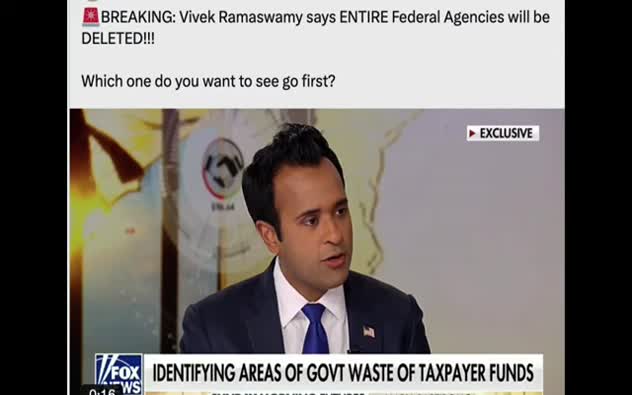
 Donate
Donate